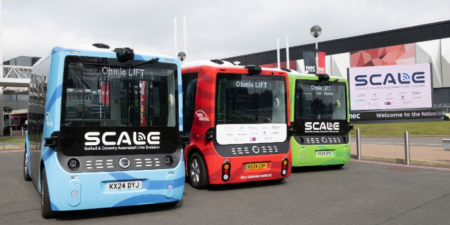ST Engineering and RideOS, a San Francisco-based transportation technology platform, have formed a partnership to initiate a full-scope plan for a global collaborative framework, as well as a pilot project to accelerate the deployment of integrated autonomous transport systems in Singapore.
The RideOS and ST Engineering partnership will initiate a first-of-its-kind self-driving technology ecosystem and end-to-end Mobility as a Service (MaaS) system that will be trialled in Singapore. The partners will each contribute core products to the collaborative framework, such as constraint-based routing and self-driving bus technology, to create a Next Generation Traffic Control System for autonomous vehicles (AVs).
The collaborative framework will, in time, include solutions from other partners that are committed to deploying safe, efficient self-driving vehicles at scale. The objective is to deliver a comprehensive on-demand mobility system for safely managing a city’s transportation services end-to-end.
The system will cover areas such as fleet management cloud services, vehicle technology, and both technological and physical infrastructure, to enable the operation of on-demand fleets of both human-operated and self-driving transport services.
ST Engineering will provide its cybersecurity expertise, platform-agnostic AV kit, Autonomous Vehicle Management System, and smart city traffic infrastructure that are necessary for operationalizing autonomous platforms safely in urbanized, mixed traffic environments.
For the first collaborative project, RideOS will power ST Engineering’s autonomous bus pilot with a set of software products and services, including real-time AV routing, estimated time of arrival (ETA) calculations, dispatch services, supply positioning, multi-rider trip planning, and fleet management dashboards.
The partnership says it will address a gap in the current industry landscape, where most current development efforts for self-driving vehicles are focused on the sensor hardware and onboard software that enable autonomy. To successfully roll out self-driving transportation at scale, fleet management platforms and smart city infrastructure are equally critical and would require relevant organizations from around the world to work together to build a comprehensive transportation system solution.
“We embrace industry collaborations and this partnership with RideOS will be the catalyst and bring together the different components necessary for an efficient autonomous transportation system in Singapore,” said Dr Lee Shiang Long, president of ST Engineering’s land systems sector. “The combination of our expertise in this global collaborative framework means that we are closer than ever to completing the full AV stack and realizing a driverless world.”
RideOS’ CEO and co-founder, Justin Ho, noted, “The underlying technology for self-driving vehicles and the infrastructure needed to support the safe, global roll-out of self-driving fleets is incredibly complex. In addition to key technologies from ST Engineering, the global collaborative framework includes our mapping and marketplace services that are powered by a real-time data platform, as well as a fleet management dashboard. However, in order to create a full-stack system, the framework must partner with numerous governments, technology providers and OEMs.”
Ho added, “Singapore is uniquely positioned to bring self-driving vehicles to the world, thanks to its Smart Nation vision, with urban planning initiatives that include ‘car-lite’ new towns with self-driving transport options.
“With integral aspects of a robust and efficient infrastructure already in place, the city makes for an ideal testbed for the roll-out of autonomous transportation systems.”




